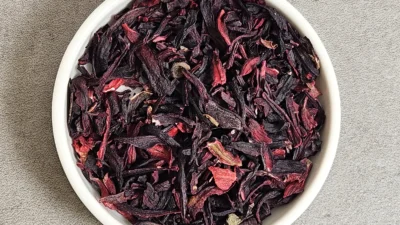The linden tree, which includes about 40 different species worldwide, grows in temperate and subtropical regions. It can appear as a tree or a shrub and is cultivated in many areas for its pleasant fragrance. The flowers and leaves of the linden tree can be consumed as tea, offering calming, fever-reducing, and immune-boosting benefits, as well as expectorant effects and respiratory relief.
Benefits of Linden
The linden tree (English: Linden) belongs to the Tiliaceae family and includes about eighty species. Its origins trace back to Europe and northern temperate climates. For hundreds of years, various parts of the linden tree, such as the white or yellow flowers and fragrant leaves, have been used for their health properties. These parts are harvested and dried to benefit from their medicinal effects. Its wood and bark are also used. Linden tea has a floral and sweet flavor and can be enjoyed hot or cold.
Main Benefits of Linden:
- Protection Against Chronic Diseases:
Linden contains high levels of antioxidants, making it a natural defender against free radicals that may cause chronic diseases, especially cancer. Regularly drinking a warm cup of linden infusion helps protect the body from illnesses and delays aging, especially skin aging. - Improved Digestion:
One cup of warm linden tea effectively and quickly helps treat bloating, gas, constipation, and stomach cramps. Linden contains compounds that enhance digestion and facilitate nutrient absorption. - Anxiety Relief and Mood Improvement:
Linden is a medicinal herb that helps reduce anxiety and stress, improve mood and mental well-being by affecting body hormones and promoting relaxation and calming the nerves. - Detoxification:
Linden contains compounds that help expel toxins, excess fats, and salts from the body through sweating, making it an excellent natural drink for fevers and aiding rapid recovery. - Treatment of Cough and Cold:
Warm linden tea helps treat flu and cold symptoms, especially cough and sore throat, soothing the throat and clearing mucus from the respiratory tract. - Relief from Menstrual Cramps:
Linden contains compounds that fight pain and ease menstrual cramps. It also helps improve other menstrual symptoms such as bloating and mood swings. - Heart Health Improvement:
Including linden in the diet enhances heart and circulatory health due to its anti-inflammatory properties, helping protect blood vessels from inflammatory damage and guarding against blood clots and blood pressure problems.
How to Prepare Linden Tea:
Linden tea is known for its benefits in preventing flu and colds. To prepare it, pour boiling water over dried linden flowers and let it steep for 10-15 minutes. After straining, honey and lemon juice can be added to improve taste and support the immune system.
How to Prepare Linden Flower Infusion:
To make the infusion, soak one teaspoon of flowers in a cup of hot water (boiling temperature) for 10-15 minutes, then strain and sweeten with honey or rock sugar. Drink three cups daily to treat:
- Colds, flu, cough, headaches, and other winter ailments.
- Nervous spasms, irritability, dizziness, nervous vomiting, palpitations, shortness of breath, insomnia, and other neurological symptoms.
- Arteriosclerosis, circulatory disorders, symptoms like varicose veins and hemorrhoids.
- Digestive weakness, bloating, heaviness of the stomach, and other digestive disturbances.
- Headaches and migraines.
- Gout and rheumatism pain.
- Proteinuria, salts, cholesterol, diabetes.
- Urinary sand and kidney, bladder, or liver stones, and related kidney, bladder, or liver colic.
- Gout, rheumatism, and sciatica.
Risks and Precautions of Linden:
Although linden tea is generally safe, there are some precautions to consider, especially for the following groups:
- Pregnant and Breastfeeding Women:
Linden may stimulate premature labor or miscarriage and can harm the infant after birth. - Heart Patients:
Despite its heart benefits, linden might have adverse effects on some people, so consulting a doctor before use is important. - Allergies:
Rarely, linden may cause allergic reactions such as contact dermatitis.
It is recommended not to drink more than three cups of linden infusion daily to avoid any risks associated with overdose. You can benefit from linden’s properties by drinking fresh or dried linden flower infusions and adding a little honey if desired.
Drug Interactions:
Caution is advised when consuming linden with certain medications, such as lithium, as linden may increase lithium levels in the body, potentially causing serious side effects. It is recommended to consult your doctor if you are taking lithium or other medications before using linden




